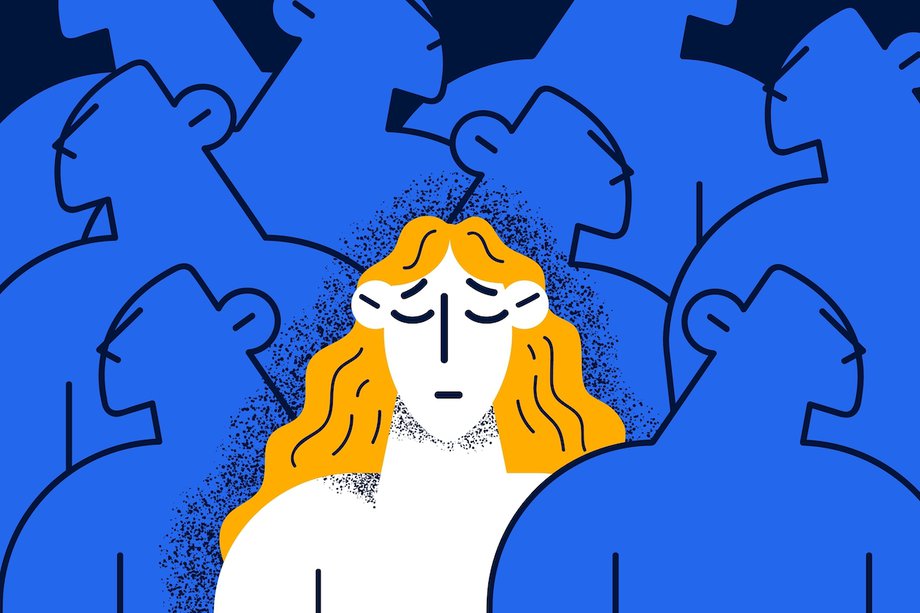What Are Antianxiety Medications And How Do They Reduce Anxiety Symptoms?

Anxiety disorders are prevalent mental health conditions characterized by excessive and persistent worry, apprehension, and fear. Antianxiety medications are commonly prescribed to alleviate these symptoms and improve overall functioning. This article aims to explore the different types of antianxiety medications available, their mechanisms of action, and how they reduce anxiety symptoms.
The first section will discuss benzodiazepines, a class of drugs that enhance the inhibitory effects of the neurotransmitter gamma-aminobutyric acid (GABA) in the brain. Benzodiazepines are known for their sedative and anxiolytic properties, making them effective in treating acute anxiety episodes.
The second section will examine selective serotonin reuptake inhibitors (SSRIs) and serotonin-norepinephrine reuptake inhibitors (SNRIs), which increase the availability of serotonin and norepinephrine in the brain. These medications have proven efficacy in reducing chronic anxiety symptoms.
Lastly, beta blockers, often used to manage cardiovascular conditions, will be discussed for their role in blocking the physical symptoms of anxiety.
Understanding the mechanisms of action of these antianxiety medications is crucial for healthcare providers and individuals seeking treatment options. Additionally, this article will briefly touch upon non-medication approaches to anxiety treatment and the importance of consulting with a healthcare provider to determine the most appropriate course of action.
Key Takeaways
- Antianxiety medications, such as benzodiazepines, SSRIs, and beta blockers, are commonly prescribed to alleviate anxiety symptoms and improve functioning.
- The mechanisms of action for these medications vary, with benzodiazepines enhancing the effects of GABA, SSRIs and SNRIs increasing the availability of serotonin and norepinephrine, and beta blockers blocking the physical symptoms of anxiety by blocking the effects of adrenaline.
- It is important for healthcare providers and individuals seeking treatment options to understand the mechanisms of action of these medications.
- While antianxiety medications can provide rapid relief of symptoms, they also come with potential side effects and their effectiveness can vary among individuals.
Different Types of Antianxiety Medications
Different types of antianxiety medications encompass benzodiazepines, selective serotonin reuptake inhibitors (SSRIs), and beta blockers, offering a diverse range of pharmacological interventions to alleviate anxiety symptoms.
Benzodiazepines, such as diazepam and alprazolam, work by enhancing the effect of gamma-aminobutyric acid (GABA), an inhibitory neurotransmitter in the brain, resulting in sedation and relaxation.
SSRIs, such as fluoxetine and sertraline, increase the availability of serotonin in the brain, which helps regulate mood and emotions.
Beta blockers, such as propranolol, work by blocking the effects of adrenaline, reducing the physical symptoms of anxiety, such as rapid heart rate and trembling.
While these medications can be effective in reducing anxiety symptoms, they may also have potential side effects, including drowsiness, dizziness, and dependency.
It is important to consult with a healthcare professional to determine the most appropriate medication and dosage for individual needs.
Mechanisms of Action
The mechanisms of action of antianxiety medications involve enhancing the effects of gamma-aminobutyric acid (GABA), a neurotransmitter that inhibits brain activity and reduces anxiety symptoms.
These medications also regulate serotonin levels, a neurotransmitter that plays a role in mood regulation, and can help alleviate anxiety symptoms.
Additionally, antianxiety medications can block the reuptake of serotonin and norepinephrine, allowing these neurotransmitters to remain active in the brain and further reduce anxiety.
Finally, some medications can block the effects of adrenaline, a hormone involved in the body’s stress response, thus helping to alleviate anxiety symptoms.
Enhancing the effects of gamma-aminobutyric acid (GABA)
Enhancing the effects of gamma-aminobutyric acid (GABA) contributes to the reduction of anxiety symptoms through its increased inhibitory action on neuronal excitability. GABA, the primary inhibitory neurotransmitter in the central nervous system, plays a crucial role in regulating anxiety.
Antianxiety medications aim to enhance GABA’s inhibitory effects by either increasing its production or prolonging its action at the synaptic level. Benzodiazepines, for example, bind to specific GABA receptors, facilitating its inhibitory action and resulting in reduced anxiety.
Another class of antianxiety medications, known as selective serotonin reuptake inhibitors (SSRIs), indirectly enhance GABA activity by modulating the serotonin system, which in turn influences GABAergic neurotransmission.
Understanding the mechanisms by which antianxiety medications enhance GABA activity is important for developing alternative treatment options that target GABAergic neurotransmission more specifically, potentially leading to improved therapeutic outcomes for individuals with anxiety disorders.
Regulating serotonin levels
Regulating serotonin levels is an important factor in managing anxiety disorders. Serotonin is a neurotransmitter that plays a crucial role in mood regulation, and imbalances in serotonin levels have been linked to anxiety and depressive disorders. Antianxiety medications work by targeting serotonin receptors in the brain, either by increasing the availability of serotonin or by blocking the reuptake of serotonin, thus increasing its concentration in the synaptic cleft. This helps to enhance the transmission of serotonin signals, leading to a decrease in anxiety symptoms. However, it is worth noting that there are also non-medication approaches to anxiety treatment that focus on regulating serotonin levels, such as cognitive-behavioral therapy and lifestyle modifications. These approaches aim to promote the natural production and utilization of serotonin, providing alternative options for those seeking anxiety relief without medication.
| Pros of Antianxiety Medications | Cons of Antianxiety Medications |
|---|---|
| Rapid relief of anxiety symptoms | Potential side effects |
| Can be helpful for severe anxiety | Risk of dependence and withdrawal |
| Widely available and prescribed | Effectiveness may vary among individuals |
| Can be used in conjunction with other treatments | Requires careful monitoring and adjustment |
Blocking the reuptake of serotonin and norepinephrine
Blocking the reuptake of serotonin and norepinephrine is a mechanism employed by certain interventions to modulate neurotransmitter levels and potentially alleviate symptoms associated with anxiety disorders.
This process involves inhibiting the reabsorption of serotonin and norepinephrine back into the presynaptic neuron, thereby increasing their availability in the synaptic cleft. By preventing their reuptake, these medications increase the concentration of these neurotransmitters, leading to enhanced neurotransmission and regulation of mood.
The increased presence of serotonin and norepinephrine allows for improved communication between neurons, which can help to reduce anxiety symptoms.
However, it is important to note that blocking the reuptake of serotonin and norepinephrine may also result in potential side effects. These can include gastrointestinal disturbances, sexual dysfunction, insomnia, and changes in blood pressure.
Therefore, it is essential for individuals taking these medications to be closely monitored by healthcare professionals to ensure the appropriate dosage and to address any adverse reactions.
Overall, the blocking of the reuptake of serotonin and norepinephrine represents one of the mechanisms of action utilized by antianxiety medications to alleviate anxiety symptoms, but careful consideration of potential side effects is necessary.
Blocking the effects of adrenaline
Adrenaline is a neurotransmitter that plays a significant role in the body’s stress response and increasing its effects can contribute to heightened anxiety. In the context of antianxiety medications, blocking the effects of adrenaline is a common mechanism employed to alleviate anxiety symptoms.
Adrenaline, also known as epinephrine, is responsible for activating the body’s fight-or-flight response, which triggers physiological changes such as increased heart rate, elevated blood pressure, and rapid breathing. By blocking the effects of adrenaline, antianxiety medications help to reduce these physiological responses to anxiety. This can lead to a decrease in symptoms such as racing heartbeat, excessive sweating, and feelings of restlessness.
By modulating the body’s response to stress, these medications provide relief for individuals experiencing anxiety disorders. However, it is important to note that blocking adrenaline effects alone may not be sufficient, as anxiety is a complex condition influenced by various neurotransmitters and physiological processes.
Benzodiazepines
Benzodiazepines, a class of antianxiety medications, exert their anxiolytic effects by enhancing the inhibitory neurotransmitter gamma-aminobutyric acid (GABA) in the central nervous system. GABA helps to regulate neuronal excitability and reduce anxiety symptoms. Benzodiazepines are available in different forms and dosages, allowing healthcare professionals to tailor treatment to individual needs. Common forms include tablets, capsules, and oral solutions. The dosage prescribed depends on various factors such as the severity of anxiety, patient characteristics, and response to treatment. While benzodiazepines can effectively reduce anxiety symptoms, they also carry potential side effects and risks. Common side effects include drowsiness, dizziness, and cognitive impairment. Long-term use may lead to tolerance, dependence, and withdrawal symptoms upon discontinuation. Therefore, it is important for healthcare professionals to carefully monitor patients using benzodiazepines and consider alternative treatments when appropriate.
| Side Effects | Risks |
|---|---|
| Drowsiness | Tolerance |
| Dizziness | Dependence |
| Cognitive Impairment | Withdrawal symptoms |
SSRIs and SNRIs
Selective serotonin reuptake inhibitors (SSRIs) and serotonin-norepinephrine reuptake inhibitors (SNRIs) are commonly prescribed pharmaceutical agents that are used to alleviate symptoms of anxiety by modulating neurotransmitter activity in the central nervous system.
SSRIs work by increasing the levels of serotonin, a neurotransmitter involved in regulating mood, while SNRIs also increase the levels of norepinephrine, another neurotransmitter that affects mood.
These medications are effective in reducing anxiety symptoms and have been found to be beneficial for various anxiety disorders, such as generalized anxiety disorder, panic disorder, and social anxiety disorder.
However, it is important to note that SSRIs and SNRIs may have different side effects, including nausea, insomnia, and sexual dysfunction.
Additionally, some individuals may not respond well to these medications or may prefer alternative treatments such as therapy, lifestyle changes, or other medication options.
Beta Blockers
Examples of commonly prescribed beta blockers include propranolol, metoprolol, and atenolol. These medications are often used to treat high blood pressure, heart conditions, and migraines.
In the context of anxiety, beta blockers work by blocking the effects of adrenaline on the body, which can help reduce symptoms such as rapid heart rate and trembling.
However, it is important to note that beta blockers may have potential side effects and risks, including fatigue, dizziness, and in rare cases, worsening of heart conditions.
Examples of commonly prescribed beta blockers
Commonly prescribed beta blockers, such as propranolol and metoprolol, have been shown to effectively reduce anxiety symptoms by blocking the effects of adrenaline on the beta receptors in the body. These medications are commonly used to manage anxiety disorders and are particularly useful in situations where the physical symptoms of anxiety, such as rapid heart rate and trembling, are prominent.
Some different beta blockers that are commonly prescribed include atenolol, bisoprolol, and nadolol.
While beta blockers are generally well-tolerated, there are some common side effects that individuals may experience, including fatigue, dizziness, and cold hands or feet.
It is important to note that beta blockers are not typically used as a first-line treatment for anxiety disorders, but they can be a useful option for individuals who experience primarily physical symptoms of anxiety.
How beta blockers work to reduce anxiety symptoms
Beta blockers work by blocking the effects of adrenaline on the beta receptors in the body, effectively reducing the physical symptoms associated with anxiety. These medications primarily target the beta-1 receptors located in the heart, leading to a decrease in heart rate and blood pressure. By inhibiting the action of adrenaline, beta blockers help to calm the body’s physiological response to stress and anxiety. This can be particularly beneficial for individuals with performance anxiety, as it can help alleviate symptoms such as trembling, palpitations, and sweating. The use of beta blockers in managing anxiety is based on their ability to control heart rate and reduce the impact of the sympathetic nervous system, which is responsible for the body’s fight-or-flight response. Overall, beta blockers play a crucial role in reducing anxiety symptoms by modulating the body’s physiological response to stress.
Potential side effects and risks of beta blocker use
One important aspect to consider when using beta blockers for anxiety management is the potential side effects and risks associated with their use.
While beta blockers are generally well-tolerated, they can have certain side effects. These may include fatigue, dizziness, and sexual dysfunction.
Additionally, beta blockers have been associated with more serious risks, particularly when used in high doses or for a prolonged period. For instance, long-term use of beta blockers has been linked to the development of diabetes, as they can impair glucose metabolism.
Moreover, abrupt discontinuation of beta blockers can lead to rebound hypertension, angina, or even myocardial infarction.
It is therefore crucial for healthcare providers to carefully assess the potential risks and benefits of beta blocker use in each individual, taking into account their specific medical history and overall health status.
Combination Therapy
Combination therapy in the treatment of anxiety involves the simultaneous use of multiple medications to effectively reduce anxiety symptoms. It is often used when a single medication is not sufficient or when an individual does not respond well to monotherapy.
In addition to medication, non-medication approaches such as therapy and lifestyle changes may also be incorporated into combination therapy.
The goal of combination therapy is to target different aspects of anxiety symptoms simultaneously, enhancing the overall effectiveness of treatment. For example, a combination of an antidepressant and benzodiazepine may be prescribed to address both the underlying causes of anxiety and the immediate symptoms. Other combinations may include antidepressants with antipsychotics or mood stabilizers.
However, it is important to note that combination therapy should be carefully monitored by a healthcare professional due to the potential for increased side effects and interactions between medications. The decision to use combination therapy should be based on a thorough assessment of the individual’s symptoms, medical history, and potential risks and benefits.
Non-Medication Approaches to Anxiety Treatment
Non-medication approaches to anxiety treatment encompass a range of therapeutic techniques and lifestyle modifications that aim to alleviate symptoms and improve overall well-being. These holistic approaches are often used in combination with traditional medication or as standalone treatments for individuals who prefer non-pharmacological interventions. Some non-medication alternatives include cognitive-behavioral therapy (CBT), which helps individuals identify and change negative thought patterns and behaviors that contribute to anxiety. Mindfulness-based stress reduction (MBSR), a practice that involves focusing attention on the present moment, has also shown promise in reducing anxiety symptoms. Other approaches such as relaxation techniques, exercise, and dietary changes can also play a role in managing anxiety. Additionally, incorporating a support system and engaging in self-care activities can further enhance the effectiveness of non-medication approaches.
| Pros | Cons |
|---|---|
| Natural and holistic | May not be effective for severe cases |
| No side effects | Requires regular practice and commitment |
| Can be used alongside medication | Takes time to see results |
| Encourages self-awareness and personal growth | Not covered by all insurance providers |
Consultation with a Healthcare Provider
Consultation with a healthcare provider is crucial when considering medication as a treatment for anxiety. Seeking professional advice and guidance ensures that the most appropriate medication is prescribed based on an individual’s specific needs. Additionally, healthcare providers play a vital role in monitoring the effectiveness of the medication and making any necessary adjustments to the dosage or treatment plan.
Seeking professional advice and guidance
Seeking professional advice and guidance is crucial in order to receive appropriate treatment for anxiety disorders as experts are able to provide in-depth knowledge, objective assessments, and personalized recommendations based on the individual’s specific needs and circumstances.
When seeking therapy for anxiety, a healthcare provider can offer a range of options to explore, such as cognitive-behavioral therapy (CBT), which aims to identify and change patterns of negative thinking and behavior. Additionally, they may suggest alternative treatments like mindfulness-based stress reduction (MBSR) or relaxation techniques to complement traditional therapy approaches.
Professional guidance can also help in determining the need for antianxiety medications, weighing the potential benefits and risks. By consulting a healthcare provider, individuals can gain access to a comprehensive and tailored treatment plan that addresses their unique anxiety symptoms.
Finding the right medication and dosage for your specific needs
Finding the appropriate medication and dosage tailored to an individual’s specific needs is a crucial step in effectively managing and treating anxiety disorders.
While there are several antianxiety medications available, it is important to find the one that works best for each individual. This can involve a process of trial and error, as what works for one person may not work for another.
It is recommended to work closely with a healthcare professional to find the right medication and dosage. Additionally, it is essential to consider alternative treatments and therapies that may complement medication, such as cognitive-behavioral therapy or relaxation techniques.
Managing medication side effects is also important, as some individuals may experience unwanted effects. Regular communication with a healthcare provider can help address these concerns and ensure the medication is effective in reducing anxiety symptoms.
Regular monitoring and adjustments
Regular monitoring and adjustments are important in managing and optimizing the effectiveness of medication for anxiety disorders. To ensure the best outcomes, healthcare professionals regularly schedule check-ins with patients to assess their progress and make necessary adjustments to the treatment plan. This ongoing monitoring allows for personalized treatment plans tailored to the individual’s specific needs.
- Evaluation of symptoms: Regular check-ins enable healthcare professionals to evaluate the patient’s symptoms and track their progress over time. This helps in determining the effectiveness of the medication and identifying any changes or improvements needed.
- Dosage adjustments: Anxiety medication dosages may need to be adjusted based on the patient’s response and tolerance. Regular monitoring helps healthcare professionals identify if the current dosage is sufficient or if adjustments are necessary to achieve optimal therapeutic effects.
- Side effect management: Monitoring allows healthcare professionals to assess and manage any side effects that may arise from anxiety medications. By regularly checking in with patients, healthcare professionals can make necessary adjustments to minimize side effects and improve overall treatment outcomes.
By regularly monitoring and making adjustments, healthcare professionals can ensure that patients receive the most effective and personalized treatment for their anxiety disorders.
Frequently Asked Questions
Are antianxiety medications addictive?
Antianxiety medications can be addictive, especially benzodiazepines. However, there are non-addictive alternatives such as selective serotonin reuptake inhibitors (SSRIs) and serotonin-norepinephrine reuptake inhibitors (SNRIs) that have shown effectiveness in reducing anxiety symptoms.
How long does it take for antianxiety medications to start working?
The average duration for antianxiety medications to start working varies depending on the specific medication and individual factors. Dosage requirements may also impact the time it takes for the medication to take effect.
Can antianxiety medications be used long-term?
The long-term effects of antianxiety medications are still being studied. While they can provide short-term relief, alternative treatments such as therapy and lifestyle changes should also be considered for managing anxiety symptoms.
What are the common side effects of antianxiety medications?
Common side effects of antianxiety medications are drowsiness, dizziness, and impaired coordination. However, their effectiveness in reducing anxiety symptoms outweighs these adverse effects, making them a valuable treatment option for anxiety disorders.
Can antianxiety medications be used to treat all types of anxiety disorders?
Antianxiety medications have limitations in treating all types of anxiety disorders. Alternative treatments, such as cognitive-behavioral therapy and relaxation techniques, may be considered for individuals who do not respond well to medication.








